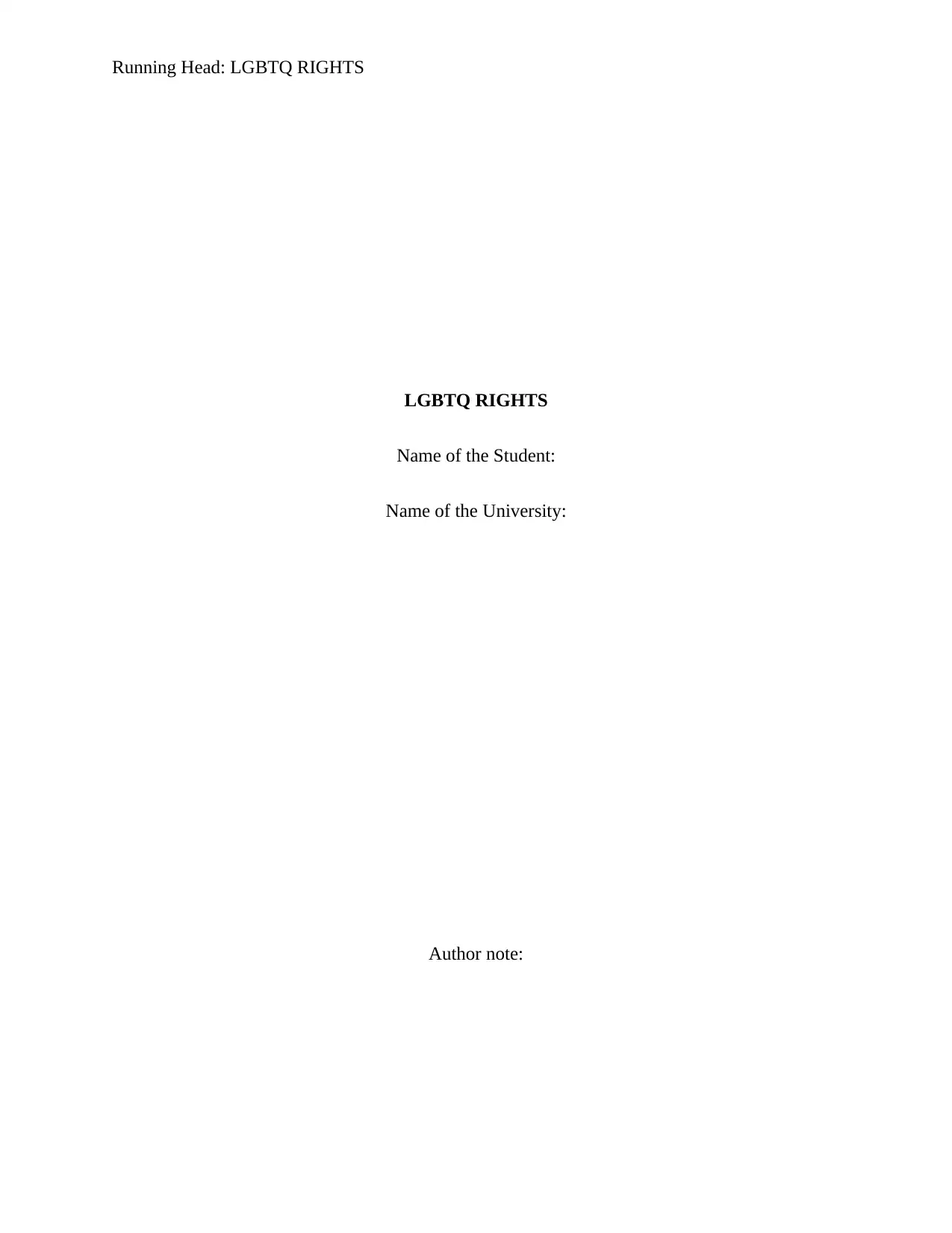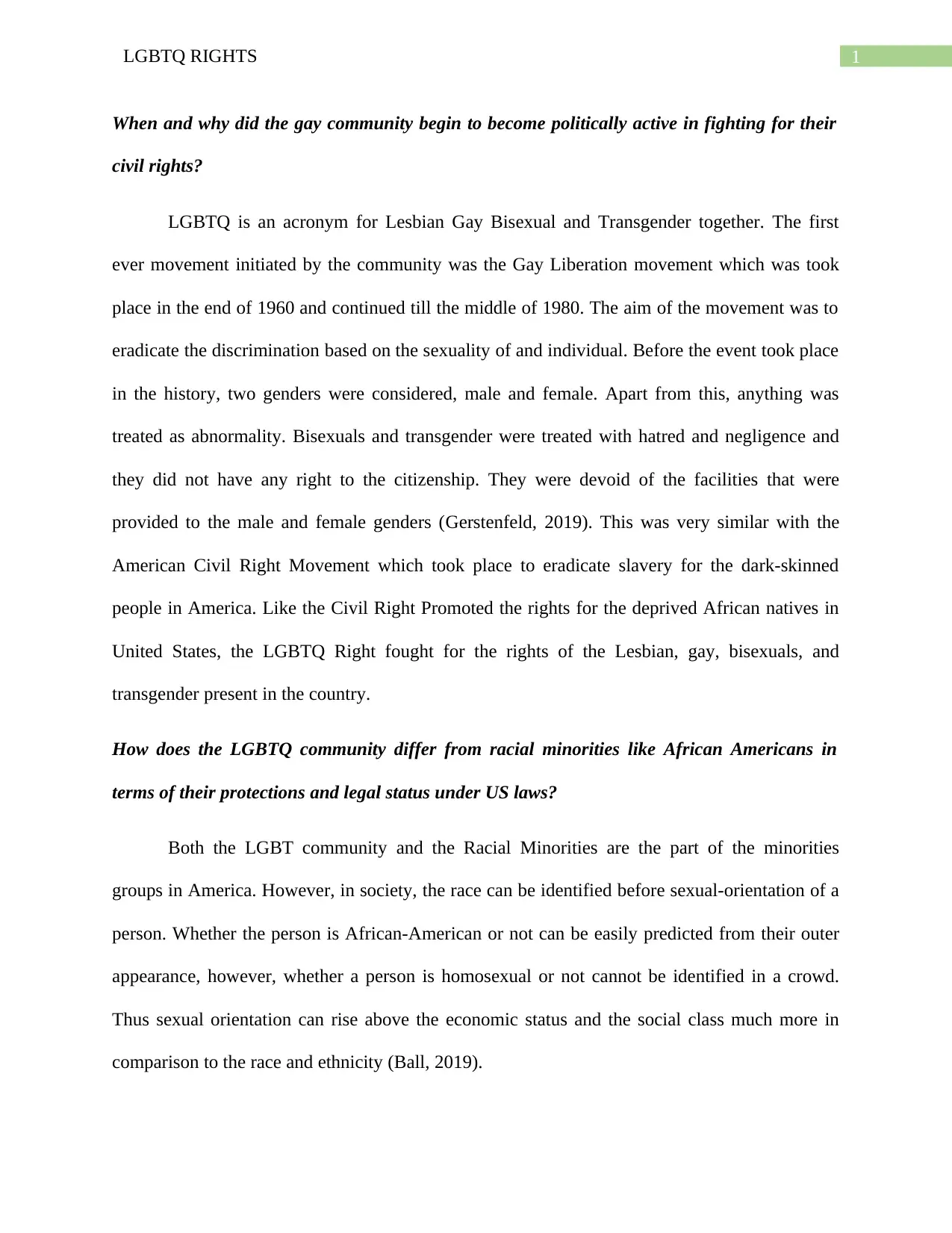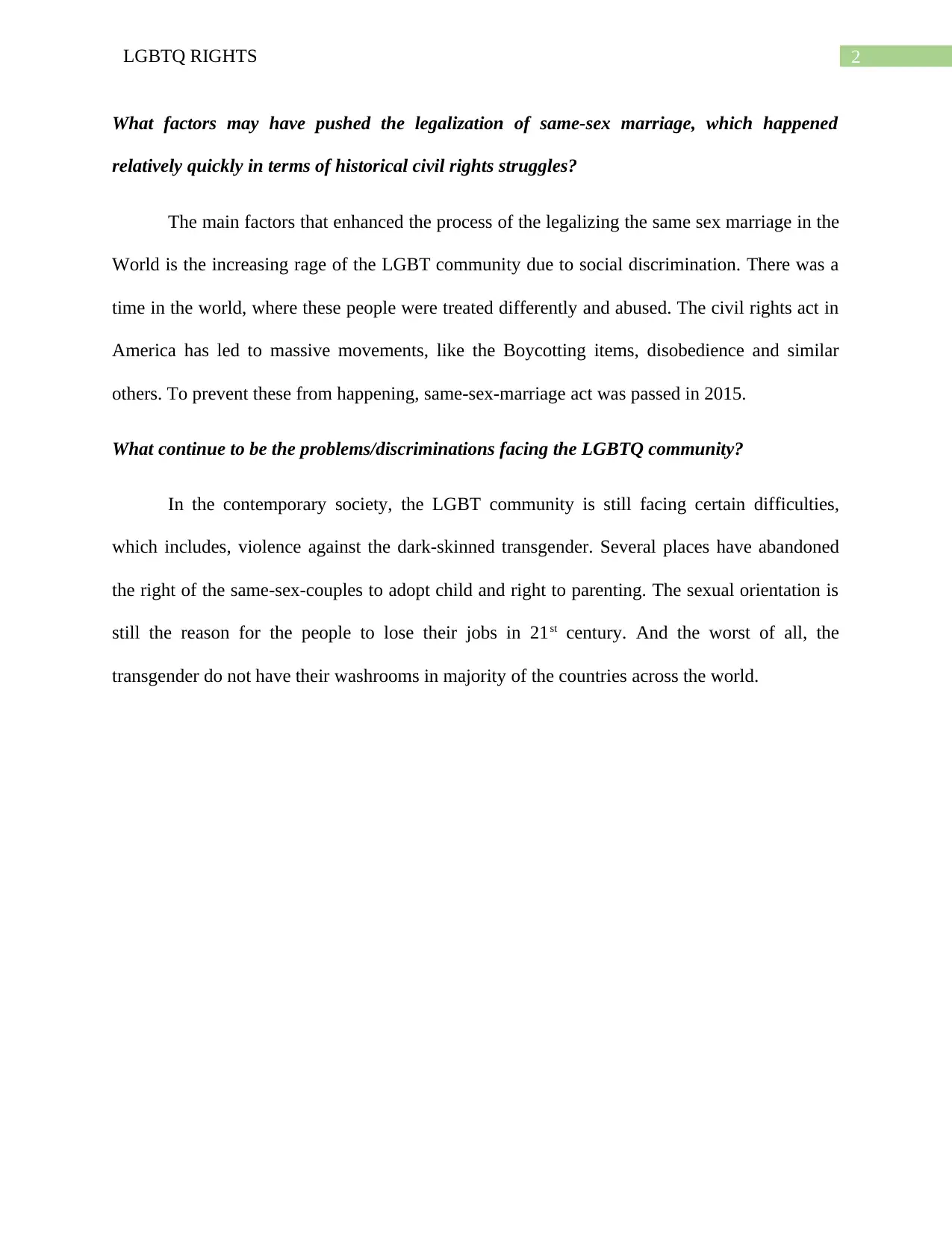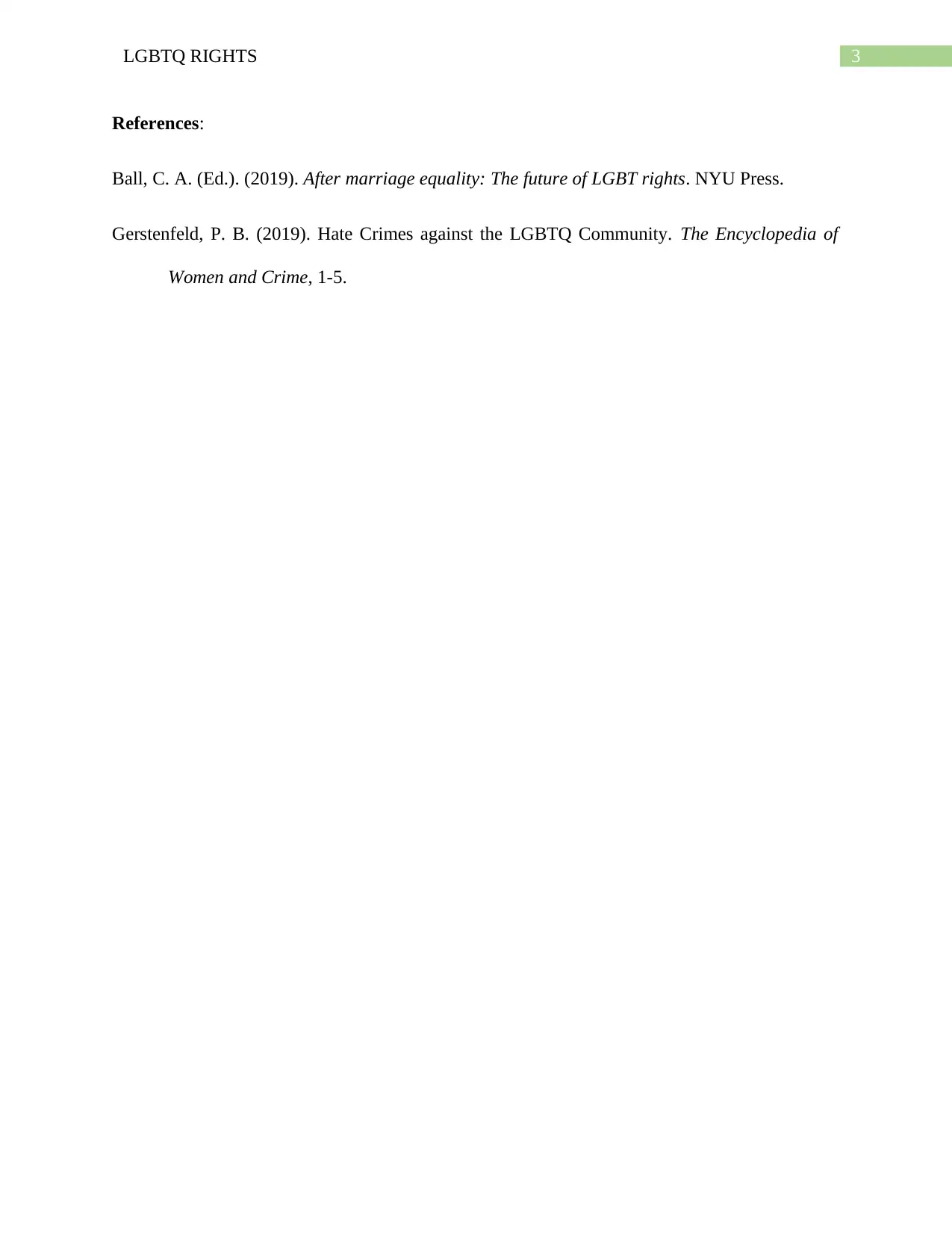Political Science Report on LGBTQ Rights and Discrimination
VerifiedAdded on 2022/08/22
|4
|603
|19
Report
AI Summary
This report analyzes LGBTQ rights, starting with the Gay Liberation movement and its fight against discrimination. It compares the LGBTQ community's experiences with racial minorities, highlighting differences in visibility and social perceptions. The report examines factors leading to the legalization of same-sex marriage, attributing it to the LGBTQ community's activism and the Civil Rights Act. It also addresses ongoing challenges, including violence against transgender individuals, limitations on adoption and parenting rights, workplace discrimination, and the lack of transgender-friendly facilities. The report references key sources and provides a comprehensive overview of the topic.
1 out of 4











![[object Object]](/_next/static/media/star-bottom.7253800d.svg)